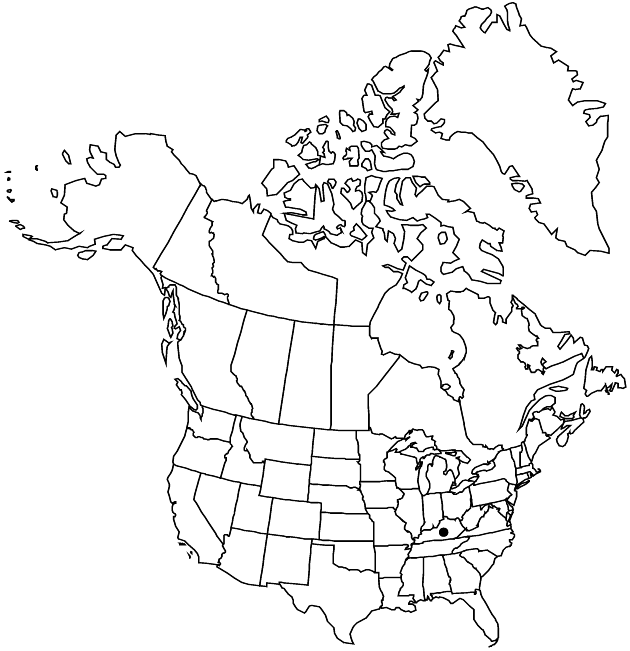Solidago albopilosa
Rhodora 44: 2. 1942.
Plants 28–60 cm; caudices woody. Stems 1–3+, erect, flexuous in proximal arrays, moderately to densely villous. Leaves: basal withering by flowering; basal and proximal cauline abruptly tapering to winged, villous petioles (petioles ± 1/2 or less total leaf length), blades broadly ovate to spatulate, 46–80(–90) × 23–47(–55) mm, margins serrate [teeth 6–12(–15)], abaxial faces moderately villous, more so along nerves, adaxial sparsely to moderately villoso-strigose; distal cauline petiolate, similar to proximal or more elliptic, 27–45 × 13–20 mm, margins entire to slightly serrate. Heads 10–30, in short axillary and terminal racemiform/paniculiform clusters. Peduncles 3–5 mm, sparsely strigose; bracteoles 1–3 scattered, ovate. Involucres campanulate, 4.3–6.5(–7) mm. Phyllaries in ca. 3 series, unequal, outer ovate, 1–1.5 mm, obtuse to acute, inner oblong, 1-nerved. Ray florets 3–5; laminae 2.4–4 × 1–1.5 mm. Disc florets 5–8; corollas 2.2–2.5 mm, lobes ca. 1–2 mm. Cypselae (obconic) 1–2 mm, moderately hairy; pappi 2.3–2.8 mm. 2n = 36.
Phenology: Flowering Sep.
Habitat: Sandstone "rockhouses" (semicircular recesses which extend back under cliff overhangs, typically shaded and damp)
Elevation: ± 400 m
Discussion
Of conservation concern.
Solidago albopilosa is found along the Red River Gorge in Menifee, Powell, and Wolfe counties. It is most similar to S. flexicaulis; it appears weaker and smaller than plants of S. flexicaulis that grow nearby, outside of the rockhouses. Its biology and origins have been discussed in detail (J. R. Beaudry 1959; M. L. Andreasen and W. H. Eshbaugh 1973). Solidago albopilosa is listed as threatened by the U.S. Fish and Wildlife Service (Federal Register 1988).
